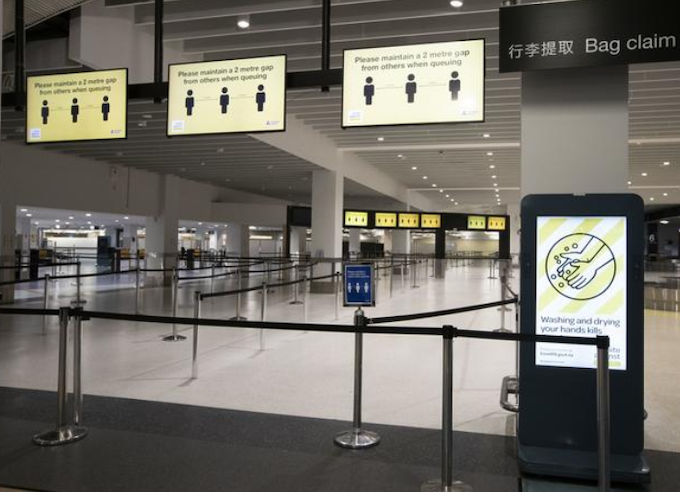By Craig McCulloch, RNZ News deputy political editor
The New Zealand government is feeling the pressure from all sides on covid-19 with critics calling the latest border controls both too strong and too weak.
New rules, announced yesterday, mean nearly all New Zealanders living abroad will soon have to show a negative covid-19 test before boarding their flight home.
Only travellers from Australia, Antarctica and some Pacific Islands will be exempt.
The Health Ministry is expected to announce a phased roll-out of countries affected over the coming weeks, beginning with the United Kingdom and United States from midnight Friday.
It is a shift in position for the government, which last year described blanket pre-departure testing as ineffective and unnecessary.
Covid-19 Recovery Minister Chris Hipkins said the government’s strategy had evolved in response to the global environment and a new strain of the virus running rampant abroad.
“More and more countries are now adopting pre-departure testing which makes it a lot more feasible,” Hipkins told RNZ.
“If only New Zealand was doing it, it would actually be very difficult for people to comply.”
‘Complacent’ response
National leader Judith Collins said her party had been calling for such action since August and the government had been “lackadaisical” and “complacent” in its response.
“There seems to be a real lack of urgency. These pre-departure tests should already have been in place, as they have in other countries. Canada, for instance, took a week. How come it’s taken us so long?”
Epidemiologist Professor Michael Baker said National’s criticism had validity as most airlines already required a negative test now anyway.
“We have been quite slow with this,” he said. “I don’t think it’s enough.”
Dr Baker said the government risked putting too much faith in a single pre-departure test and wanted it to go even further.
He said people coming to New Zealand from high-risk spots should be required to first quarantine at an airport hotel for five days with a rapid test at check-in and check-out.
That would greatly reduce the chance of a person becoming infected with covid-19 in the few days before departing.
‘Not good guarantee’
“Getting a negative test over that period isn’t really a very good guarantee that they’re not infected,” Baker said.
“We think that a better approach would be to introduce a brief period of hotel quarantine at the airport.
“The alternative, really, is suspending travel from those [high-risk] countries.”
But Hipkins said pre-departure quarantine would be incredibly costly and logistically challenging to implement.
“I’d never rule anything out, but that would be very, very difficult to enforce. New Zealand would ultimately have to supervise it. That would mean New Zealand having people in all of those other countries.”
In contrast, microbiologist Dr Siouxsie Wiles – a vocal critic of pre-departure testing – told RNZ she was disappointed by the blanket roll-out.
“What happens to families if someone tests positive? Do they end up being stranded overseas? What happens if they’re stranded in a country where they might not have adequate healthcare?”
Dr Wiles said she would prefer New Zealand took a more “compassionate” approach.
“We know the pandemic is raging. People have a right to come home. I worry about putting barriers in their way.”
This article is republished under a community partnership agreement with RNZ.











































